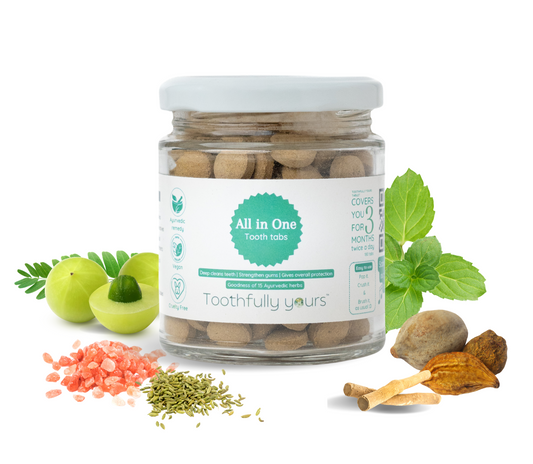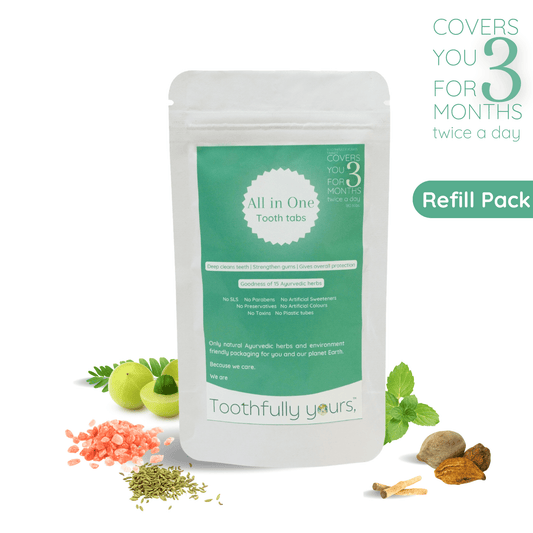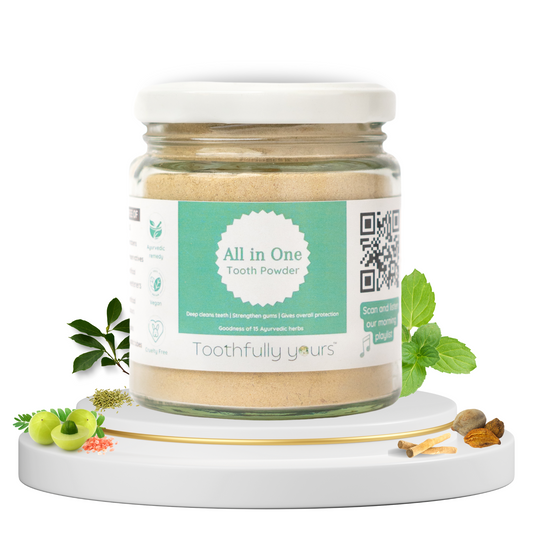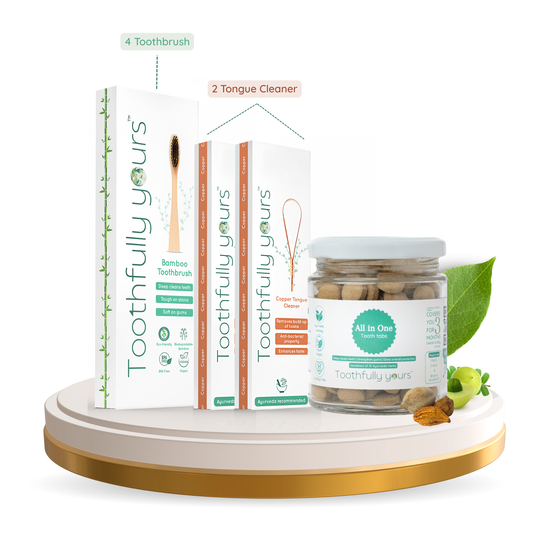
Tooth Sensitivity: Causes, Prevention, Care Tips, and Treatment Options
Tooth sensitivity, also known as dentin hypersensitivity, is a common dental problem characterized by discomfort or pain in response to certain stimuli, such as hot, cold, sweet, or acidic foods and beverages. In this comprehensive guide, we'll delve into the causes of tooth sensitivity, effective prevention strategies, practical care tips, and available treatment options to alleviate discomfort and promote optimal oral health.
Causes of Tooth Sensitivity:
- Enamel erosion: The outer layer of the tooth, known as enamel, protects the underlying dentin and nerve tissues. Enamel erosion, often caused by acidic foods and beverages, aggressive brushing, or acid reflux, can expose the dentin and lead to sensitivity.
- Gum recession: Receding gums expose the sensitive roots of the teeth, making them more susceptible to sensitivity. Gum recession can result from periodontal disease, aggressive brushing, or aging.
- Tooth decay: Cavities and tooth decay can weaken the enamel and dentin, leading to sensitivity. Untreated decay can progress to involve the nerve tissues, causing severe pain and sensitivity.
- Cracked or fractured teeth: Cracks or fractures in the teeth can expose the underlying dentin and nerves, resulting in sensitivity, especially when chewing or biting.
- Grinding or clenching: Habitual grinding or clenching of the teeth, known as bruxism, can wear down the enamel and lead to sensitivity.
Prevention of Tooth Sensitivity:
- Practice good oral hygiene: Brush your teeth twice a day with our All in One tooth tabs with highly effective ayurvedic ingredients. Floss daily to remove plaque and debris from between the teeth and along the gumline, use copper tongue cleaner to remove toxins from the tongue and interdental brush for cleaning between tight spaces in between teeth.
- Limit acidic foods and beverages: Reduce your consumption of acidic foods and drinks, such as citrus fruits, soda, and vinegar, which can erode enamel and contribute to sensitivity.
- Avoid aggressive brushing: Brushing too hard or using a hard-bristled toothbrush can damage the enamel and gums, increasing the risk of sensitivity. Use gentle and soft bristle toothbrushes for great cleaning and minimum discomfort.
- Wear a mouthguard: If you grind or clench your teeth, wearing a custom-fitted mouthguard at night can help protect your teeth from damage and prevent sensitivity.
- Avoid excessive whitening treatments: Overuse of whitening toothpaste or treatments can exacerbate sensitivity by weakening enamel. Use whitening products sparingly and as directed by your dentist.
- Visit your dentist regularly: Schedule regular dental check-ups and cleanings to monitor your oral health and address any underlying issues that may contribute to sensitivity.

EDITOR’S PICK
True Care Oil Pulling Oil
Removes plaque. Prevents cavities. Promotes fresh breath.
Check Now →Treatment Options for Tooth Sensitivity:
- Bonding or fillings: If tooth decay or enamel erosion is causing sensitivity, your dentist may recommend bonding or fillings to repair the affected teeth and reduce sensitivity.
- Gum grafting: In cases of severe gum recession, your dentist may recommend gum grafting surgery to cover exposed tooth roots and reduce sensitivity.
- Root canal therapy: If sensitivity is caused by infection or damage to the tooth nerve, root canal therapy may be necessary to remove the damaged nerve tissues and alleviate pain.
- Crowns or inlays: For cracked or fractured teeth, your dentist may recommend crowns or inlays to restore strength and function and reduce sensitivity.
Teeth sensitivity as per Ayurveda
In Ayurveda, tooth sensitivity, or Dantadhavanasa, is often attributed to an imbalance in the body's doshas, particularly Vata and Pitta. According to Ayurvedic principles, an excess of these doshas can lead to various oral health issues, including sensitivity. Here's an overview of how Ayurveda approaches tooth sensitivity, including causes, dietary recommendations, and remedies.
Causes of Tooth Sensitivity in Ayurveda
According to Ayurveda, tooth sensitivity occurs due to an imbalance in the doshas, particularly Vata and Pitta. Vata imbalance can cause dryness and sensitivity in the teeth and gums, while Pitta imbalance can lead to inflammation and sensitivity. Other factors contributing to tooth sensitivity in Ayurveda include poor oral hygiene, improper diet, and weak digestion.
Foods to Avoid
Ayurveda recommends avoiding certain foods and lifestyle habits that can aggravate tooth sensitivity. These include:
- Acidic foods: Citrus fruits, tomatoes, vinegar, and other acidic foods can erode enamel and exacerbate tooth sensitivity.
- Spicy foods: Spices like chili peppers and hot sauces can aggravate Pitta dosha and increase sensitivity in the teeth and gums.
- Sugary foods: Excessive consumption of sugary foods and beverages can lead to tooth decay, which can contribute to sensitivity.
- Cold foods and drinks: Consuming extremely cold foods and drinks can trigger sensitivity, particularly in individuals with Vata imbalances.
- Hard foods: Crunchy or hard foods can put pressure on sensitive teeth and exacerbate discomfort.
Remedies for Tooth Sensitivity in Ayurveda
Ayurveda offers several natural remedies and lifestyle practices to help alleviate tooth sensitivity and balance the doshas. These include:
- Oil pulling: Oil pulling with sesame or coconut oil is an ancient Ayurvedic practice that can help strengthen teeth, reduce inflammation, and alleviate sensitivity.
- Herbal products: Using herbs and minerals made like amla, neem, triphala, turmeric and licorice can help soothe sensitive teeth and promote oral health. Herbal sticks like - Miswak or Neem sticks are also very beneficial to improve overall oral hygiene.
- Herbal mouthwash: Rinsing the mouth with herbal mouthwashes containing ingredients like triphala, peppermint, and turmeric can help reduce inflammation and sensitivity.
- Dietary changes: Following a balanced Ayurvedic diet rich in whole foods, fresh fruits and vegetables, and nourishing fats can help support overall oral health and balance the doshas.
- Stress management: Practicing stress-reducing techniques like yoga, meditation, and deep breathing exercises can help calm the mind and body, reducing the impact of stress-related tooth sensitivity.
FAQs:
What is the best toothpaste for preventing Tooth Sensitivity?
There are many products in the market which claim to pacify tooth sensitivity. According to us the most important thing is to check the ingredient list of the toothpaste which claim to calm the sensitivity and assure that they are not using any toxic chemical to numb the nerve ending and claim temporary relief from sensitivity. Many toothpastes use Potassium Nitrate, a chemical which is also found in rocket propellant and explosives, the question here is not if this relieves pain but is this safe to human use and no side effects could be caused for a prolonged usage.
Our All in One Tooth tabs consists of only herbs and minerals like - Triphala, Miswak, Neem, Babool, Rock Salt, Liquorice to name few which helps to soothe tooth sensitivity and pacify the discomfort without any toxins. Check this guide on how to use tooth tablets? Our aim is to make you aware and then it is upto you to make an informed decision.
To sum it up, tooth sensitivity in general can be very discomforting and cause hindrance. In Ayurveda it is often viewed as a manifestation of imbalanced doshas, particularly Vata and Pitta. By adopting a holistic approach that addresses dietary habits, lifestyle factors, and natural remedies, individuals can effectively manage tooth sensitivity and promote overall oral health according to Ayurvedic principles.
If you experience persistent or severe sensitivity, consult your dentist for personalized advice and treatment recommendations tailored to your needs.

Oral Care routine your smile deserves.
Ayurveda's remedies with highly effective herbs and nothing else.
Check Now →




